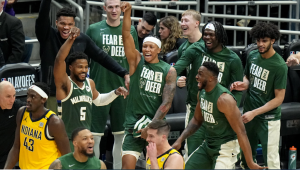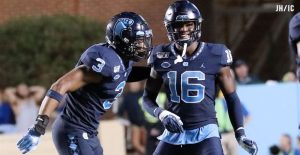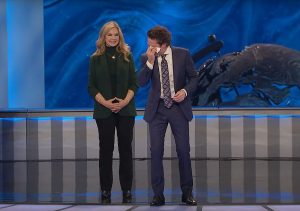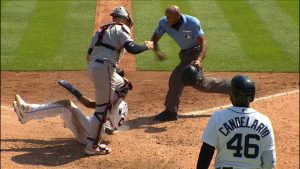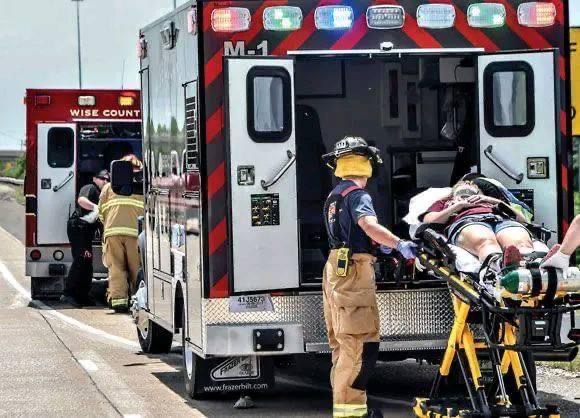
Legendary Kentucky men’s basketball coach Joe B. Hall, who led UK to 1978 title, dies at 93
Joe B. Hall, who coached the University of Kentucky men’s basketball team to three Final Fours and the 1978 national championship but could never escape the shadow of his predecessor, the legendary Adolph Rupp, died Saturday morning. He was 93.
Hall led the Wildcats to 297 wins over 13 seasons from 1972 to 1985 and to its first title without Rupp.
But fans never full embraced Hall and routinely second-guessed and even savaged him on sports talk radio.
Even after after he led UK to its fifth national crown at the Final Four in St. Louis, he famously called it “a season without celebration,” thanks to the all-or-nothing expectations placed on his team from the outset.
“I think that the pressure of following somebody like Adolph Rupp can absolutely eat you up like acid, just destroy your whole system,” Hall told The Courier Journal in 2003, the year he turned 75.

He claimed the pressure never bothered him because had had served as an assistant for seven years and knew how demanding its fans were. “There were no surprises,” he said.
But his longtime friend, Lexington lawyer Terry McBrayer, told The Courier Journal Magazine in 1985 that Hall was far more sensitive than he would ever admit.
“He lives this school and Big Blue 24 hours a day, seven days a week,” said McBrayer, who died in 2020. “He doesn’t like the booing. It hurts him. It doesn’t make him mad. It hurts him.”
When UCLA was looking for a successor for legendary coach John Wooden after he retired in 1975 with 10 NCAA crowns, Hall quipped that the school should simply hire him, giving his experience in following a legend.
“That way,” he said, “you only ruin one man’s life.”
But Hall reinvented himself after his retirement from coaching, become a figure of affection in the commonwealth, as he teamed with former adversary and University of Louisville coach Denny Crum as co-host of the “Joe B. and Denny Show.”

Syndicated on radio stations statewide from 2004 2014, the program showed a different side of Hall – warm, affable and funny.
“I don’t see how anyone could not like Joe B,” Crum told the Herald-Leader’s Mark Story in 2011.
Hall had been Rupp’s top assistant, but his only previous head coaching experience came at Denver’s Regis College and Central Missouri State. He was once described by Sports Illustrated magazine as “a former ketchup salesman.” He had, in fact, been a salesman for the H.J. Heinz company, doing some of his most persuasive work in high school cafeterias.
He took over the UK program seven seasons after its landmark loss to Texas Western – and its five Black starters – in the 1966 national championship game.
Hall fully integrated a UK program that had stood, intentionally or not, as a symbol of resistance to integration through the 1960s.
The year before Hall became head coach, the team had no Black players; on his final team, eight of the 13 players were Black. Four of Hall’s seven All-Americans – Sam Bowie, Jack Givens, Melvin Turpin and Kenny Walker – were African Americans.
Hall in 1974 also hired the first Black assistant coach in UK basketball history, Leonard Hamilton. When Hamilton, later head coach at Oklahoma State, University of Miami, the NBA’s Washington Wizards and Florida State, talked about the things he had learned from other coaches, he cited Hall for his toughness.
Former UK assistant coach Jim Hatfield said a decade after Hall retired that “Joe saw the total picture… and he stuck with what he believed in. He had the inner toughness to withstand the criticism and controversy.”
Hall was physically resilient, too, surviving cancer surgery in 1988 and a triple bypass 10 years later.
His team was the first to play in Rupp Arena, in 1976. His name appeared on the lodge that boosters built for UK players in the 1970s.
And he was the coach when the NCAA twice put the Wildcats on a collision course in the NCAA Tournament to play the University of Louisville, which it refused to schedule in the regular season.
First, in 1982, UK had only to get by underdog Middle Tennessee State. The Wildcats lost. Then, the next year, the two schools finally met in what became known as the Dream Game. Hall’s Wildcats fought back to tie the game before losing 80-68 in overtime.
Louisville wanted the series; Crum had been calling for it ever since arriving in 1971. Kentucky and Hall resisted, fearing that the General Assembly would see the two universities as equals and reduce UK’s funding edge. But public and political pressure for the game grew after Louisville’s classic win in Knoxville and UK finally relented.
After they left coaching, their old rivalry had long since faded when they began their morning radio talk show, in 2004. They could talk about bass as easily as basketball, since both were avid fishermen.
And they seemed to be genuinely fond of each other, to the surprise of fans of both programs.
“I’m like Denny,” Hall said. “I’ve fished all over the world.”
Born Nov. 30, 1928, Hall grew up in Cynthiana, where his mother, Ruth, was a florist and his father, Charles, ran a dry-cleaning business and served two terms as Harrison County sheriff.
When asked what the “B” in his name stood for, Hall often replied, “Basketball.” His actual middle name – Beasman – came from his mother’s side of the family.
He played guard at the old Cynthiana High School and went off to UK in 1946 to play basketball, but found Rupp’s team stockpiled with a cast of All-Americans who would eventually win three NCAA championships in four seasons.
Hall transferred to the University of the South, in Sewanee, Tenn., where he set a single-game scoring record with 26 points. After his senior season, he played on a college all-star team that accompanied the Harlem Globetrotters on a 58-game European tour. He eventually returned to UK to finish work on his bachelor’s degree.
Hall was a production planner for a manufacturing company in Cynthiana when he decided to become a coach in 1956.
“I kept watching guys advance who had engineering degrees, and here I sat with a degree in phys ed,” he recalled in 1985. “I loved sports and spent all my spare time either refereeing or playing. So I figured I’d better get into the field I had prepared for.”
He coached football and basketball at Shepherdsville High from 1956-58, then became assistant coach at Regis, a small Jesuit college in Denver. One of his recruits was center Louis Stout, from Hall’s home town of Cynthiana. Years later, Stout recalled Hall’s distaste for underachieving.


